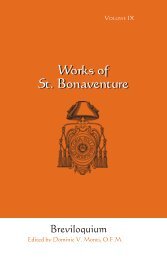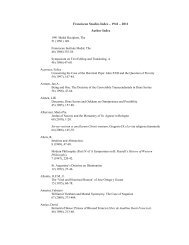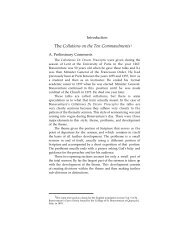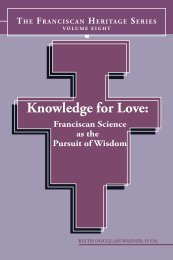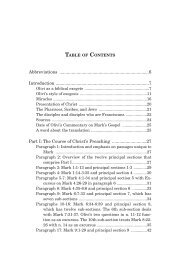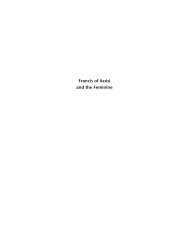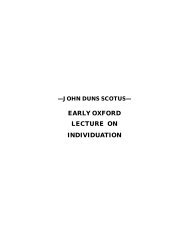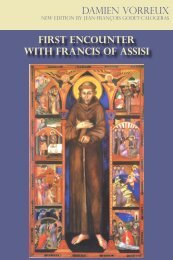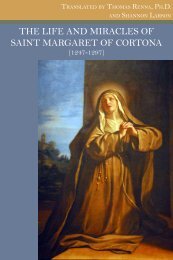FOUR QUESTIONS ON MARY - Franciscan Institute Publications
FOUR QUESTIONS ON MARY - Franciscan Institute Publications
FOUR QUESTIONS ON MARY - Franciscan Institute Publications
You also want an ePaper? Increase the reach of your titles
YUMPU automatically turns print PDFs into web optimized ePapers that Google loves.
John Duns Scotus: Four Questions on Mary<br />
the part of creatures was based on some seminal reason the<br />
creator had built into their natures. Scotus could not accept<br />
this theory any more than he could that of Aristotle. Hence,<br />
he presents his own account as to why Mary was as truly<br />
a mother as any other human parent. For those concerned<br />
with the history of the feminist movement it might be interesting<br />
to note that it was devotion to Mary more than anything<br />
else that brought the medieval theologians a long way<br />
towards realizing something of the symbolic implications of<br />
Paul’s statement (Gal. 3:28): “There does not exist among you<br />
Jew or Greek, slave or freeman, male or female. All are one<br />
in Christ Jesus.”<br />
We have omitted the even more philosophically complicated<br />
Mariological question Balic includes in his collection of<br />
Scotus’s writings on Mary. It stems from the fact that Christ<br />
was the son of a divine Father and a human mother. This<br />
caused university theologians to raise the question of whether<br />
there were two real relationships of filiation or sonship in<br />
Christ. Suffice it to say that Scotus, contrary to many of his<br />
contemporaries, insisted on the distinct reality of both filial<br />
relationships in Christ. 56 Though the question might still be<br />
of some interest to a philosopher discussing the nature of<br />
relations, or one concerned with proper theological discourse,<br />
to include it in its entirety seemed inappropriate for the present<br />
book.<br />
56 Duns Scotus, Ordinatio III, dist. 8, quest. unica: Utrum in Christo<br />
sint duae filiationes reales? ... Ad quaestionem dico quod alia est filiatio in<br />
Christo ad Patrem, et alia ad matrem, et utraque est realis. Balić, Theologiae<br />
Marianae Elementa, 127, 140.<br />
22



